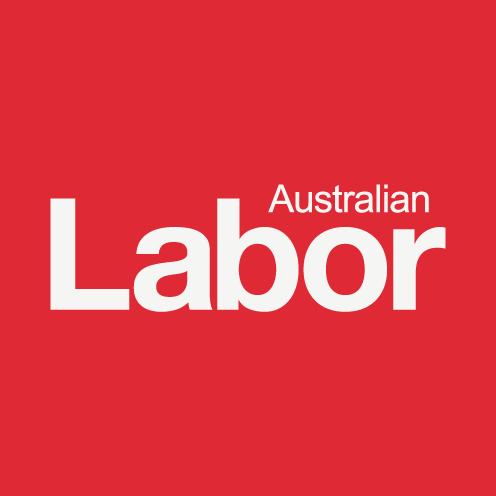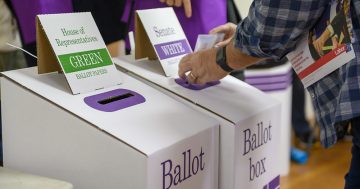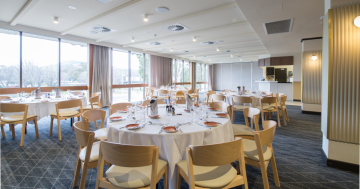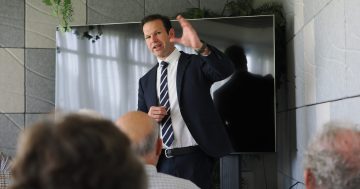
It seems every time I open a newspaper or turn on the radio or TV, I hear someone commenting on what is happening at the ALP national conference this year in Melbourne.
As I write this, it is the Friday before the conference and I get the feeling that it is a bit like Good Friday, only more public.
The Australian Labor Party exists as a membership-based organisation and I would have thought that the intellectual exchanges which make it robust (that is, the state and territory annual and national conferences) are opportunities to frame where the organisation is heading, where it wishes to end up and how it will get there.
I would have thought that if people other than the membership want a say in these deliberations, they should become members of the ALP.
So how come the Liberal Party, the Nationals, the Greens, the media and big business have such a big say in what is to happen?
Sure, these discussions determine what kind of party will continue in or form government but really, do the Libs, Nats or Greens suffer this level of intense scrutiny? I don’t think so.
What business is it of non-members whether the ties with the unions are maintained, loosened or done away with? I say it is no-one else’s business.
I know that the world is in dire straits with climate change but surely the public ought to be interested in what stance the party takes after the internal discussions, not before or during those discussions.
It is nothing short of voyeurism for the lip licking classes to speculate, comment on, criticize and predict the machinations and outcomes of the conferences.
Why is the Liberal Party not so microscopically examined? The Nats? The Greens? The corporate boardrooms? The corporate boardroom AGMs get a little airplay after the event but nothing like the scrutiny of the ALP.
I take a strong view on many of the issues before the conference this year and have done so in the past and have spoken strongly to the ACT annual conferences in the past 20 years. But in the doing so, I have spoken from the platform to the representatives of the membership, not the public at large.
I am critical of some members of the ALP who decide to use the media and other means of lobbying to arrange change of policies and procedures to push their particular barrows. These conversations should be between members not in the public arena. All too often they are criticisms of the party position and not merely a public discussion leadership. I wonder sometimes, whether relevance deprivation syndrome is at work.
There is of course, many and vast differences of opinions expressed a these conferences. This is how it should be. Further, deals are often done to come to compromise and this too can be healthy. But when all of this is under the public microscope and people will be pilloried and criticised for their views expressed inside the tent, it does not make for good decision making or governance.
It is interesting, I suppose, for those armchair critics to be vicariously involved in the discussions against the background of never being held to account for those views.
But in all of this, it must be agreed that the ALP is more democratic and more transparent than any of the other parties in the political arena. I don’t remember seeing the entrails of the other parties so graphically reported on.
On those issues listed above, let me put my position. I support the notion of climate change and any, repeat any, direction which is away from fossil fuel dependence. I find wind farms visually attractive and an enhancement of the landscape and horizon. I support the closing down of coal mining and the closing down over time of coal generated electricity.
I support gay marriage because such is none of my business and the current regime is just discriminatory.
I am appalled at the turn back the boats policy. What part of doubling a journey by sea and thus a doubling of the risk of sinking, don’t people get? A boat load of Vietnamese! Now there’s a conundrum. They don’t look like probable terrorists to me…what’s the difference between these people and the refugees of the 1970s? It was not a national emergency then! But the bigotry was alive and well then, I remember.
I support a change to the nexus between the party and the unions. The party is now and has been for many decades, a mature organisation carried on the considered opinions of its members, not the small number of union executives as in the past. I support a recognition in our governing rules that the party is a political expression borne from the struggles of the working class and that struggle is not over.
But the majority of members may not want to be part of a union and it is the union’s job to convince them why they should be members. It should not be compulsory to be a union member to belong to an organisation which supports the union movement.
For the record, when I was in the workforce, I was a member of two unions at the same time because I wanted to support them financially and recognise tangibly that I enjoyed the working conditions and salaries that the unions have fought for decades to achieve.
But the union movement is a labour movement and governance is a political movement. The two can have much in common but do not have to be married.
Note that Tony Abbott would have this marriage illegal if he could!
Just sayin’!





















